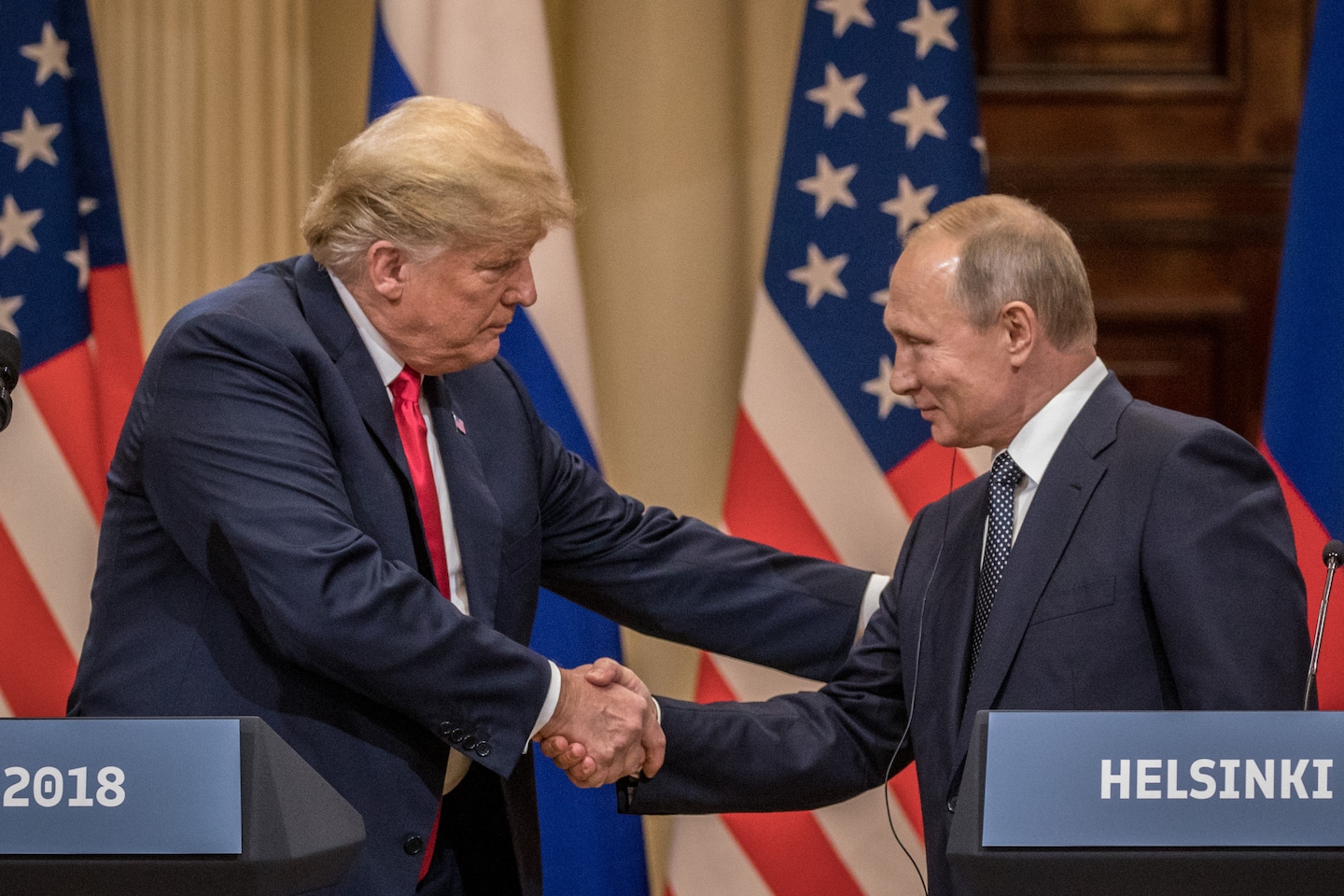Putin is reckless because we allow him to be

The United States is Putin’s main target in this “anything goes” campaign to revive his country’s reputation as a superpower. That includes a new Russian push to support President Trump in the presidential election, repeating the Kremlin’s interference of four years ago, according to William Evanina, head of the National Counterintelligence and Security Center.
“We assess that Russia is using a range of measures to primarily denigrate former Vice President [Joe] Biden and what it sees as an anti-Russian ‘establishment,’ ” Evanina said in a statement last week, adding that “some Kremlin-linked actors are also seeking to boost President Trump’s candidacy.” Evanina warned, too, about Chinese and Iranian election interference, but intelligence professionals say those efforts are less sophisticated and less dangerous than Russia’s.
Putin appears oblivious to risks and consequences, but he may be cannier than that. Trump’s reelection might seem a long shot now, but even if he loses, the post-election discord in the United States will benefit Putin. What if the Sputnik vaccine doesn’t work? Putin can deny the negative results, ignore them, or just steal the version that works. What if GRU bounty hunters in Afghanistan and assassins in Europe are exposed? No matter, Putin has succeeded in intimidating his adversaries.
In his quest for recognition and revenge, Putin keeps defying the norms of international behavior. That’s why the issue of Russian bounties to the Taliban matters — and Trump’s refusal to confront Putin about it should worry us. This Russian leader doesn’t stop until someone challenges him.
Intelligence agencies have solid evidence that Russian military intelligence officers, from the shadowy Unit 29155 of the GRU, paid money to Taliban fighters whose bombing killed three U.S. Marines in April 2019. What’s more, sources say, there are forensic links between the GRU officers involved in the Afghan operation and GRU colleagues who carried out the attempted assassination of Russian defector Sergei Skripal in March 2018 in Salisbury, England.
Far from deterring Putin, the exposure of the alleged Salisbury assassination attempt was a prelude to the reckless GRU bounties. Putin is stuck in an endless loop of revenge. The Soviet Union is dead and gone, and the Cold War is ancient history — but not for this former KGB officer. He’s still fighting the lost cause: It’s not enough to denigrate his enemies; he actively pursues and tries to kill them. Rather than reforming Russia’s corrupt, authoritarian system, he works to undermine the United States’ fragile democracy.
Europe has tracked Putin’s brutal score-settling — which isn’t difficult because his operatives barely bother to hide the evidence. The British investigative website Bellingcat has alleged that, in 2015, two GRU officers poisoned a Bulgarian arms manufacturer; Bellingcat has also described the GRU’s role in a 2016 coup attempt in Montenegro. Special counsel Robert S. Mueller III, meanwhile, laid out the evidence that the GRU assaulted Democratic Party websites in 2016. Britain has revealed GRU officers’ role in the alleged Skripal assassination attempt in March 2018. The following month, four GRU officers were caught in a botched hacking operation in the Netherlands.
The GRU covert warriors were so brazen that they even created a “rear base” in the French Alps, used by 15 operatives, according to a December 2019 report by the French newspaper Le Monde. Not only has Russian intelligence tried to murder defectors in Britain, but a 2018 New York Times report alleged that Russia sent a hit man to Florida four years before to kill an unidentified defector there.
How should the United States deal with Putin? George P. Shultz and William J. Perry, highly respected former secretaries of state and defense, respectively, joined more than 100 other prominent experts in endorsing an open letter, published by Politico, calling for a pragmatic, dispassionate attempt to rebuild relations with Moscow.
Rethinking assumptions is often valuable in foreign policy. But in this case, the rethinking should begin with an embittered Kremlin, which seems to relish icons of the Cold War and unwisely keeps taunting the United States. Putin takes pleasure in jabbing his enemies but, over the long run, he is not going to win this fight.
Read more:






